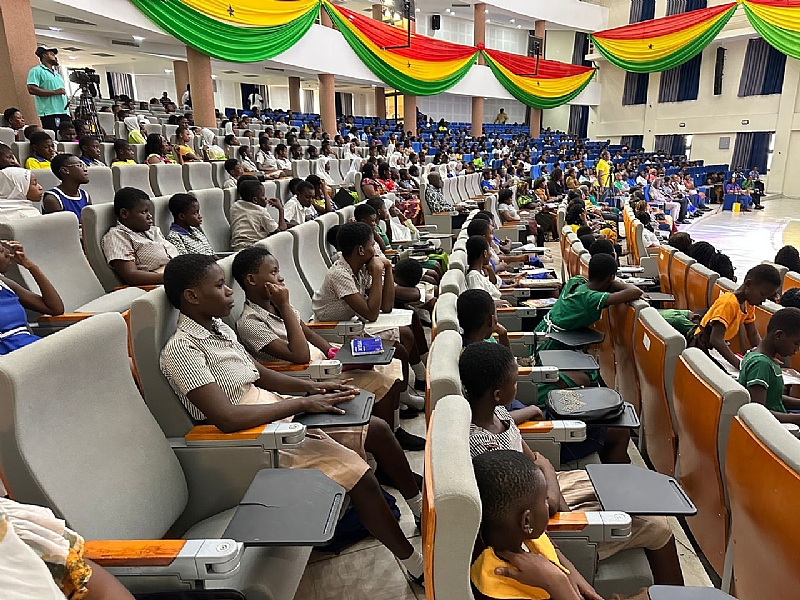The Minister for Communications and Digitalisation, Mrs. Ursula Owusu-Ekuful, emphasized the Ghanaian government’s dedication to reducing the gender gap in the digital and technological sectors through initiatives like the Girls-in-ICT mentorship programme. Speaking at the KNUST Business School in Kumasi, she highlighted the significance of preparing young girls with the skills necessary to excel in fields such as Science, Technology, Engineering, and Mathematics (STEM). The minister expressed her enthusiasm for being part of this movement aimed at unlocking the potential of young girls, stating that their involvement in the programme marks a crucial first step toward engaging them in technology careers. To succeed in these endeavors, she urged participants to remain curious, persistent, and open to learning.
In her address, Mrs. Owusu-Ekuful called on various stakeholders, including parents, educators, and industry leaders, to actively support and encourage girls to pursue education and careers in STEM fields. Recognizing the important role of these figures, she asserted that their involvement is vital in fostering a supportive environment for young girls. The Girls-in-ICT initiative represents a flagship programme under the Ministry of Communications and Digitalisation, designed specifically to tackle the gender digital divide by providing mentorship, practical training, and networking prospects tailored for young girls. This collaborative effort aims to create a more inclusive tech environment that empowers female participation.
At the heart of the Girls-in-ICT programme is a concentrated effort to develop critical skills among participants, such as coding, web development, and digital marketing. By focusing on these areas, the programme seeks to equip young girls not only with theoretical knowledge but also with practical competencies that are highly sought after in the digital job market. Moreover, the initiative emphasizes the importance of fostering problem-solving skills and entrepreneurial thinking, thereby preparing participants to navigate challenges and seize opportunities within the tech industry.
The structure of the Girls-in-ICT programme ensures that participants enjoy a comprehensive learning experience. They benefit from hands-on training and have access to experienced mentors who guide them through various stages of their professional development. Additionally, the programme cultivates a supportive community of peers, offering participants opportunities to network and share experiences. This collaborative environment not only enhances the girls’ employability but also empowers them to view themselves as future innovators and leaders in the business landscape. The ministry’s commitment to creating pathways for young women underscores the importance of diversity in driving innovation.
Through programs like Girls-in-ICT, the ministry aims to inspire a new generation of women in technology, helping them navigate a historically male-dominated industry. The initiative seeks to break down barriers that have traditionally hindered female participation in digital and tech fields. By investing in the skills and confidence of young girls, the government hopes to ensure that the future workforce is not only more diverse but also better equipped to address the challenges of a rapidly evolving digital world.
In conclusion, the Girls-in-ICT mentorship programme stands as a pivotal strategy in Ghana’s broader efforts to empower girls and women in technology. The initiative reflects a commitment to building an equitable digital landscape where young girls can thrive and contribute meaningfully. As they embark on this journey, the support from various stakeholders will be vital in ensuring the success of these young women, fostering a culture that champions inclusivity and innovation. Mrs. Owusu-Ekuful’s call to action serves as a reminder that collective efforts are essential in reshaping the digital future of Ghana and enhancing opportunities for all, particularly women in the STEM fields.














